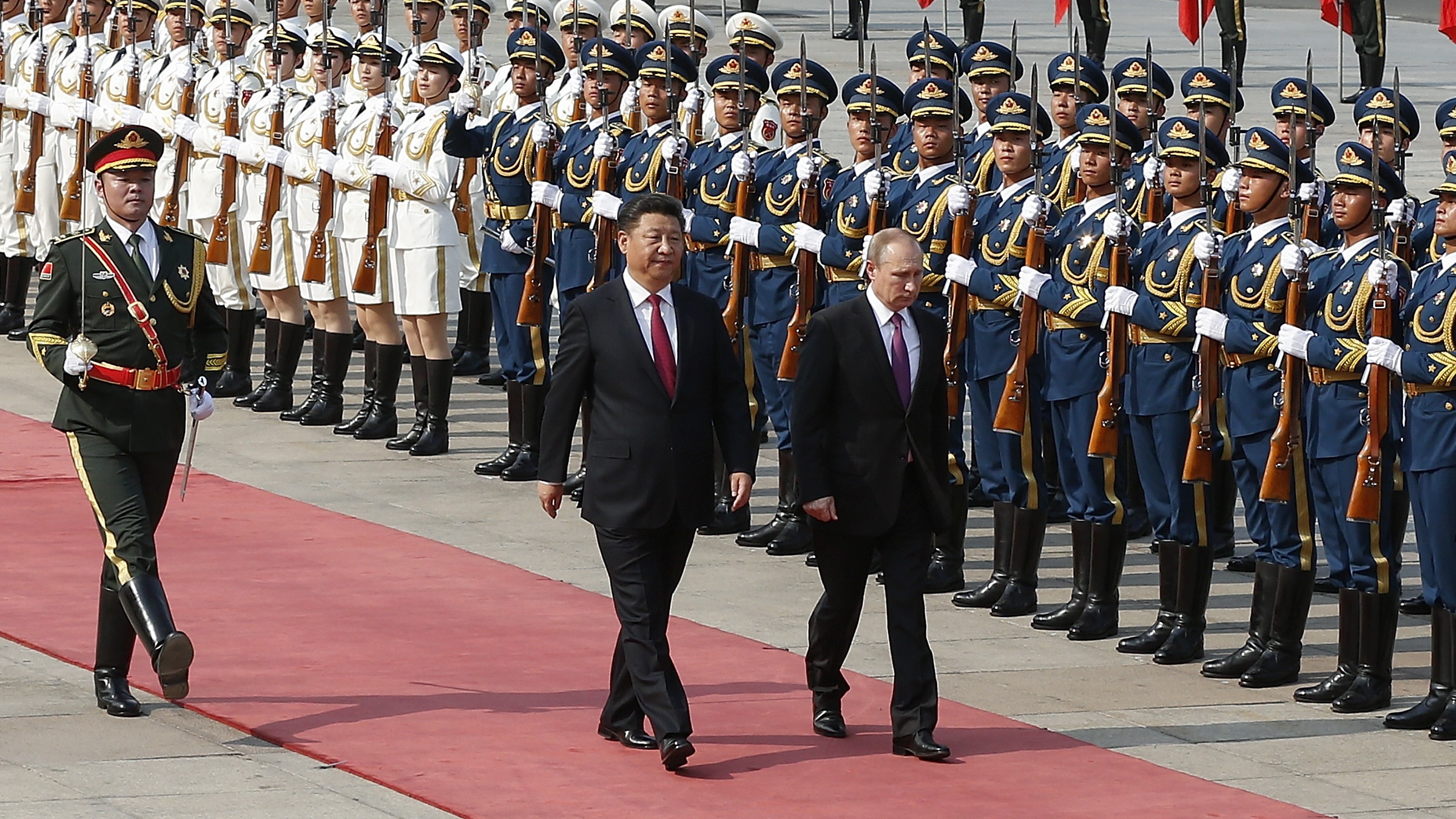Russia and China joining forces to build first Moon base
Lunar pact represents ‘all kinds of security threats’ to UK and US, expert warns

A free daily email with the biggest news stories of the day – and the best features from TheWeek.com
You are now subscribed
Your newsletter sign-up was successful
China and Russia have announced a joint plan to build a lunar research station on the Moon, in the first sign that the two superpowers will work together in the next phase of the space race.
The International Lunar Research Station (ILRS) will be a “comprehensive scientific experiment base with the capability of long-term autonomous operation”, according to a statement on the China National Space Administration (CNSA) website.
The site will be built either on the Moon’s surface or in its orbit and will be used for “research activities such as the lunar exploration and utilisation, lunar-based observation, basic scientific experiment and technical verification”, the statement continues.
The Week
Escape your echo chamber. Get the facts behind the news, plus analysis from multiple perspectives.

Sign up for The Week's Free Newsletters
From our morning news briefing to a weekly Good News Newsletter, get the best of The Week delivered directly to your inbox.
From our morning news briefing to a weekly Good News Newsletter, get the best of The Week delivered directly to your inbox.
And while no timeline has been published for the project, the base will ultimately be open to “all interested countries and international partners”, the Chinese space agency pledged.
Despite that promise, rival nations in the space race are unlikely to welcome the development.
“China has pushed to the front lines of space research for the first time” over the past few years, The Washington Post reports, “while Russia has been seeking to regain its leading position from the 1950s and 1960s”.
In 2019, China became the first country to land an unmanned spacecraft on the dark side of the Moon. The country’s astronauts then ferried 2kg of lunar rock and soil back to Earth last year - the first moon material to be brought back in more than four decades.
A free daily email with the biggest news stories of the day – and the best features from TheWeek.com
Meanwhile, the UK and US are “playing catch-up by boosting military forces capable of fighting battles against future enemies in space”, says the Daily Mirror.
Defence expert Bruce Jones told the paper that “Russia and China combining their resources, their finances and expertise could lead to all kinds of security threats”.
“The agreement between the two countries will act as a force multiplier in that it will increase the capabilities of both,” added Jones, a Russian intelligence specialist.
“Security for the West in space is enormously important because of our satellite technology which could come under threat.”
Joe Evans is the world news editor at TheWeek.co.uk. He joined the team in 2019 and held roles including deputy news editor and acting news editor before moving into his current position in early 2021. He is a regular panellist on The Week Unwrapped podcast, discussing politics and foreign affairs.
Before joining The Week, he worked as a freelance journalist covering the UK and Ireland for German newspapers and magazines. A series of features on Brexit and the Irish border got him nominated for the Hostwriter Prize in 2019. Prior to settling down in London, he lived and worked in Cambodia, where he ran communications for a non-governmental organisation and worked as a journalist covering Southeast Asia. He has a master’s degree in journalism from City, University of London, and before that studied English Literature at the University of Manchester.